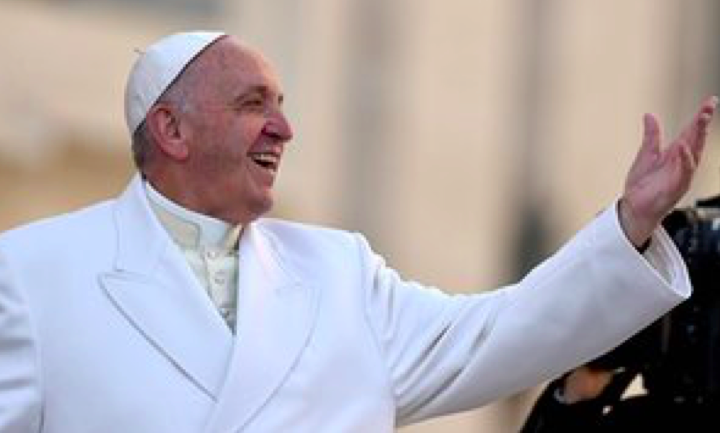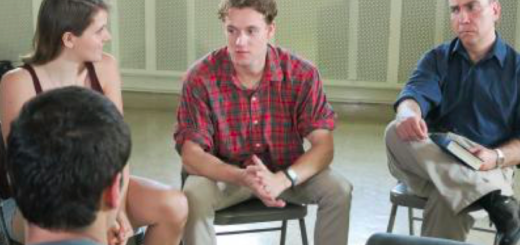Pope Francis’s style is certainly a change. But where’s the substance?

 Guardian, UK, Columnist writes –
Guardian, UK, Columnist writes –
By Joanna Moorhead, in the Guardian, UK, Friday 8 April 2016
The pope’s Joy of Love document speaks to ordinary Catholics. But he really needs to make the Vatican’s ossified bureaucracy do the same.
‘Whatever Francis wants to change, the reality is that he is surrounded by a deeply conservative institution run largely by self-serving bureaucratic men.’
(Note: Some wit has already said, that Francis is surrounded by “wolves” in sheep’s clothing. The real question for others is: “Is he just surrounded only, or literally caged in by, because he had already come out with something very positive about ‘gay’ people after the 2014 Synod and about communion as a medicine for the sick, not just the reward for the perfect. In the apostolic exhortation, he has or he was forced to go back on all these points. The best he says on all of them is: “Do not be judgmental” or just “Don’t Judge!’ It is like G.K. Chesterton saying: “Don’t ever say ‘you damned’, but you may very well say ‘you damnable’”. All of us are, aren’t we? Sinners like Pope! Then where will you put a divorced and civilly married led to communion table with the help of a celibate cleric helping him/her to form the conscience? Put him/her in heaven or hell? According to old theology all who commit mortal sin should be locked up in hell. Francis and Cardinal Walter Kasper will wriggle out of it through: “Mercy, mercy, mercy” which is the name of our God. But what about the grunting, groaning and gnashing of teeth coming from the Conservative wing of the Church? This seems to be the problem the Guardian columnist is hinting at. No doubt, the divorced and remarried civilly are in “irregular situation”. But who among us is not, when the Pope himself proclaims: “I am a sinner”? Aren’t we all passing the buck and feeding people with the Ice on the cake and froth in the Cappuccino? Where to go for a real taste of the cake and the coffee? That will come when, and only when individuals are left to decide or taught  prayerfully to make up one’s own conscience and act boldly, without the aid of a celibate cleric especially in sexual matters. We may have to wait a very very long time for that “Acche Din” to come. james kottoor, editor.)
prayerfully to make up one’s own conscience and act boldly, without the aid of a celibate cleric especially in sexual matters. We may have to wait a very very long time for that “Acche Din” to come. james kottoor, editor.)
Four days after the surprise election of an Argentinian to the throne of St Peter, I sat with an Italian family in their home on Lake Garda, watching the new pontiff on the telly as he stood on the steps of a church inside the Vatican, greeting people streaming out of the service as though he was any parish priest in any Catholic parish on the planet.
“Wow,” said my Italian friends. “This guy looks a bit different.” There was something earthy about Jorge Bergoglio, despite his being newly poured into the dove-white outfit in which he would thenceforth always be seen. The papal attire was familiar enough, but the papal attitude was very different.
At one point, the new pope actually hugged and kissed a female worshipper. He was ruffling kids’ hair, laughing and joking with their parents. What he was doing was the thing that has gone on to define his papacy: he was making proper connections with real people.
Connecting with people really matters: but unfortunately for Francis, who today publishes a major document called Amoris Laetitia (Joy of Love) that urges compassion for all, it’s not the most important part of being a pope. Much more far-reaching and important than his style is his substance – because when his pontificate is over, and he is dead and gone, it’s the way he’s changed the fabric of the church, and not just the way it looks, that will live on.
The reality about the pope’s statement is that it does in words exactly what Francis does in the flesh. It speaks the language ordinary people speak, and it acknowledges the reality of ordinary people’s lives. Most of us don’t live in some rarefied holy bubble; many of us aren’t living perfect lives; and Amoris Laetitia acknowledges this.
Whether we’re Catholics or not, many of us are divorced or gay or in relationships that the church, in its inimitable wisdom, would deem “irregular”; many of us have done things the church at least frowns upon, and maybe condemns outright. The thing we all know, or the thing we should all know, is that no one – no one, whoever they are and whatever they do, or have done, or for that matter mean to do – is outside the remit of God’s love: that’s the simple truth the pope believes. So Francis, who seems acutely and impressively conscious of this fact, is happy to get down and dirty with the rest of us. He’s a sinner too, he says. No one of us is better than another. Who, he seems to be saying, is perfect in this world? Not me.
So he’s talking the talk and he’s walking the walk: but is he actually changing anything as regards church doctrine on people who have divorced and remarried, for example? Not really: the document eschews new rules in favour of passing the buck to individual parishes and individual priests and bishops. They must look at the rights and wrongs of particular cases, where there is some “irregularity”, and in that word much-used in Catholic circles, they must “discern” what is right.
It all sounds rather depressingly like business as usual to most of us Catholics. We all know that the so-called faithful follow their noses on church teaching, and make up their own minds on what is and isn’t morally right, or sinful. Time isn’t on Pope Francis’s side in any respect: the world has changed, the Catholic population has changed, and what we need are proper, nailed-down markers of that to drag the church at least into the 20th century on issues such as same-sex relationships, divorce, and children born outside marriage.
And that, it seems, is precisely what Pope Francis is unable to provide. It’s an odd paradox that this is a man known for being infallible, and infallibility suggests power; but the truth is that the pope’s biggest power is to change the way the papacy looks, not the way the Catholic church actually operates in terms of its rules and doctrines.
Because whatever Francis wants to change, the reality for him is that he is surrounded by a deeply conservative institution run largely by self-serving bureaucratic men, most of them cut off from the reality of people’s lives –from lives with which Francis himself, impressively, still seems to manage to connect.
And the bottom line is this: if he doesn’t manage to overturn those Vaticanbureaucrats, it’s all froth on the cappuccino, at a time when the church desperately needs to wake up and smell the coffee.

















After reading this news story and the editorial comment plus my personal experiences at the Vatican, I feel that Pope Francis has enriched the Universal Catholic Church but failed the wider world for no fault of his own.